Introduction
Do Rabbits Eat Bird Seed: Rabbits, being herbivores, primarily feed on plant-based foods such as grass, hay, vegetables, and fruits. Their digestive systems are adapted for processing fibrous materials, which is why their diet is rich in cellulose-containing vegetation. However, the consumption of bird seed by rabbits is a matter of intrigue, as bird seed is typically a mixture of various small grains and seeds, such as sunflower seeds, millet, and corn, designed to cater to the nutritional needs of birds.
While rabbits may nibble on a variety of plants and grasses, there is little evidence to suggest that they have a natural inclination toward consuming bird seed. In the wild, rabbits rely on their specialized digestive system to break down fibrous plants, and seeds might not provide the same level of sustenance as their usual fare. Moreover, some of the seeds found in bird seed mixes can be high in fat content, which might not align with a rabbit’s dietary requirements.
It’s important to note that while rabbits might occasionally sample bird seed if it’s available, it’s not a suitable or balanced food source for them. In fact, a diet primarily composed of bird seed could lead to nutritional deficiencies and health problems for rabbits over time. Rabbits require a consistent supply of fiber, vitamins, and minerals to maintain their well-being, and bird seed may not offer the comprehensive nutrition they need.
In households where both rabbits eat birds are kept as pets, it’s advisable to store their respective foods separately and ensure that each species receives the appropriate diet. Offering rabbits a variety of fresh vegetables, hay, and high-quality rabbit pellets is key to ensuring their nutritional needs are met.
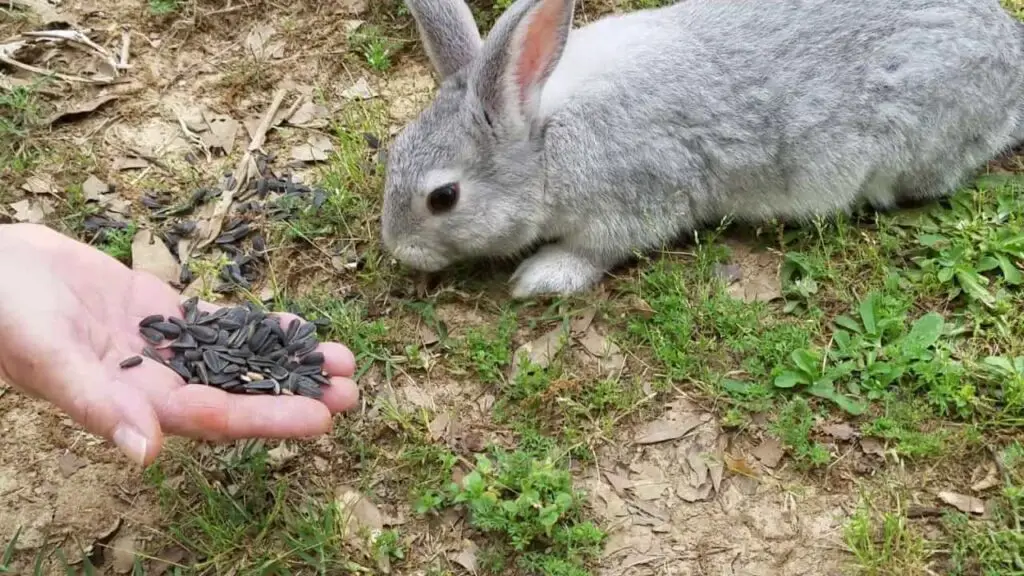
What seeds are safe for rabbits?
Rabbits do encounter and eat them in the wild (in grasses and berries), and many pet rabbits are commonly fed fruits which contain small seeds (strawberries, kiwi, banana and many types of berries), as well the aforementioned grass seeds in their hay.
Importance of Seeds in a Rabbit’s Diet
Seeds can be an excellent source of essential nutrients, including healthy fats, proteins, and fiber, for rabbits. These nutrients contribute to a well-rounded diet and can offer a variety of health benefits, such as a healthy coat, improved digestion, and energy support. Introducing seeds in moderation can also help keep rabbits mentally stimulated during feeding time.
Safe Seeds for Rabbits
Timothy Hay Seeds: These seeds are a safe and natural addition to a rabbit’s diet. They offer a good balance of nutrients and are often found in high-quality hay mixes. Rabbits enjoy munching on these seeds, which can also encourage natural foraging behavior.
Flax Seeds: Flax seeds are rich in omega-3 fatty acids, which are beneficial for a rabbit’s skin, coat, and overall well-being. However, these seeds should be given in moderation due to their high fat content.
Pumpkin Seeds: Pumpkin seeds are a good source of protein, fiber, and essential minerals such as zinc and magnesium. They can contribute to a rabbit’s dental health by providing a natural chewing exercise.
Sunflower Seeds: Sunflower seeds are another option, but they should be given sparingly due to their higher fat content. Opt for unsalted and unshelled seeds to minimize the risk of choking.
Chia Seeds: Chia seeds are a great source of fiber and provide a gentle boost to digestive health. However, like other seeds, they should be introduced in moderation.
Can a rabbit eat rice?
You should not give your rabbit rice under any circumstances; it is not a safe food for them and offers little nutritional value. Rabbits do not need to eat grains, and rice could cause tummy ache, although it is not actively poisonous. A rabbit that has eaten rice may be bloated and uncomfortable.
Rice in a Rabbit’s Diet
Rice is a staple food in many human cultures, and it contains carbohydrates that provide energy. However, when it comes to rabbits, their digestive systems are uniquely adapted to a diet primarily composed of fibrous plant material. As herbivores, rabbits require a high-fiber, low-starch diet to maintain proper gut health and avoid digestive issues.
Can Rabbits Eat Rice?
Rabbits can technically eat small amounts of cooked and plain rice without immediate harm. However, it’s important to understand that rice lacks the necessary fiber content that is crucial for a rabbit’s digestive system. Rabbits thrive on a diet that supports their complex gastrointestinal system, which relies on a constant influx of high-fiber foods to maintain proper gut motility and prevent conditions like gastrointestinal stasis.
Risks and Considerations
Digestive Discomfort: Rice lacks the adequate fiber content that rabbits need for optimal digestion. Feeding rice to rabbits in large quantities can lead to digestive discomfort, including bloating and diarrhea.
Nutritional Deficiency: Rice primarily provides carbohydrates and lacks essential nutrients that rabbits require for their overall health. Relying on rice as a primary food source can lead to nutritional imbalances and deficiencies over time.
Obesity: Rice is calorie-dense and can contribute to weight gain in rabbits if fed in excess. Obesity in rabbits can lead to various health issues, including joint problems and decreased lifespan.
What do wild rabbits eat seeds?
Wild rabbits are naturally drawn to grasses and other green vegetation, but they also love roots, flowers, clovers, fruits, fungi, nuts, seeds, bark and twigs. It’s important for them to eat a wide variety of these things in order to get all the vitamins and minerals that their bodies need.
Wild Rabbit Diet
Wild rabbits are herbivores, which means their diet consists entirely of plant-based foods. Their natural diet is rich in fiber, which is essential for maintaining their digestive health. The majority of their diet is composed of grasses, leaves, and stems of various plants. Wild rabbits have evolved to consume a wide variety of plant materials to fulfill their nutritional needs and adapt to the changing seasons.
Do Wild Rabbits Eat Seeds?
While wild rabbits primarily rely on fibrous vegetation, they do consume seeds to a lesser extent. Seeds are not a staple of their diet but can be an occasional food source, especially in environments where seeds are abundant. Some wild rabbit species, such as the European rabbit, may include seeds as part of their diet when they are available.
Role of Seeds in the Wild Rabbit Diet
Supplemental Food: Seeds can act as a supplemental food source for wild rabbits during periods when their usual plant foods are scarce. This adaptability helps them survive in environments with varying food availability.
Energy Source: Seeds are calorie-dense and can provide a quick energy boost for wild rabbits. This is particularly important during colder months or when rabbits are expending extra energy, such as during mating and raising young.
Variety in Diet: A diverse diet is beneficial for wild rabbits to obtain a range of nutrients. Consuming seeds in addition to their regular diet of grasses and plants contributes to this dietary variety.
Is corn good for rabbits?
Do not feed your rabbit potatoes, corn, beans, seeds, or nuts. These foods are difficult for rabbits to digest and can cause serious digestive problems.
Corn as a Source of Nutrition
Corn, also known as maize, is a starchy vegetable that contains carbohydrates, fiber, and a range of vitamins and minerals. While corn can be a nutritious option for humans, it’s important to evaluate its suitability for rabbits based on their specific dietary requirements.
Benefits of Feeding Corn to Rabbits
Energy Source: Corn is energy-dense due to its carbohydrate content, which can provide rabbits with an extra energy boost. This can be particularly useful during colder months or for active rabbits that require more calories.
Vitamins and Minerals: Corn contains essential vitamins like B vitamins (thiamine, niacin, and folate) and minerals such as phosphorus and magnesium. These nutrients contribute to various bodily functions, including metabolism and bone health.
Variety in Diet: Introducing small amounts of corn occasionally can add dietary variety for rabbits. A diverse diet can help prevent boredom and promote natural foraging behaviors.
What kind of sunflower seeds can rabbits eat?
Rabbits love black oil sunflower seeds (BOSS). They are a great winter tonic! I only feed BOSS to my rabbits in the cooler months, as it is a high calorie, high fat, “hot” feed. So it keeps them warm and shiny, great for a dry winter coat.
Safe Sunflower Seeds for Rabbits
When considering sunflower seeds for rabbits, it’s crucial to focus on the type of seeds and how they are prepared. Here are the two main types of sunflower seeds that rabbits can eat:
Unsalted and Unshelled Sunflower Seeds: These are the safest option for rabbits. Unsalted seeds ensure that rabbits are not exposed to excess sodium, which can be harmful to their health. Unshelled seeds provide rabbits with an opportunity for natural foraging and chewing, which is beneficial for dental health.
Black Oil Sunflower Seeds: Black oil sunflower seeds are a common type of sunflower seed that rabbits can enjoy. They are smaller and have thinner shells compared to striped sunflower seeds, making them easier for rabbits to handle and consume.
Benefits of Sunflower Seeds for Rabbits
Healthy Fats: Sunflower seeds are a source of healthy fats, including essential fatty acids like omega-6. These fats contribute to a rabbit’s skin and coat health, promoting a shiny and vibrant appearance.
Protein Content: Sunflower seeds contain protein, which is essential for various bodily functions, including muscle maintenance and growth.
Nutrient Variety: Adding sunflower seeds to a rabbit’s diet in moderation can provide additional nutrients like vitamin E, B vitamins, and minerals such as phosphorus and magnesium.
Can rabbits eat sunflower and pumpkin seeds?
Pumpkin seeds, also called pepitas, are among the few seeds that rabbits can safely consume. However, rabbits can only enjoy raw pumpkin seeds as an occasional treat. Pumpkin seeds are nutritious, as they’re packed in vitamin A, B-complex vitamins, calcium, iron, zinc, copper, manganese, and potassium.
Sunflower Seeds for Rabbits
Sunflower seeds are a popular snack among humans and can also be enjoyed by rabbits, provided they are given in moderation.
Benefits
Nutrient Rich: Sunflower seeds are a source of healthy fats, proteins, and essential nutrients like vitamin E, which contributes to a rabbit’s skin and coat health.
Variety: Introducing a small amount of sunflower seeds as a treat can add variety to a rabbit’s diet and stimulate their interest in different foods.
Natural Foraging: Sunflower seeds can encourage natural foraging behavior, providing mental stimulation and promoting dental health as rabbits chew on the seeds’ shells.
Considerations
Moderation: Due to their higher fat content, it’s important to offer sunflower seeds in moderation. Overconsumption can lead to weight gain and potential health issues.
Unsalted and Unshelled: Choose unsalted and unshelled sunflower seeds to avoid excess sodium and to encourage rabbits to work on the seeds’ shells through natural chewing.
Pumpkin Seeds for Rabbits
Pumpkin seeds, also known as pepitas, can be a nutritious addition to a rabbit’s diet when offered with care.
Benefits
Nutrient Variety: Pumpkin seeds contain essential nutrients like protein, healthy fats, and vitamins, contributing to a well-rounded diet.
Digestive Health: The fiber content in pumpkin seeds can support healthy digestion in rabbits by aiding in proper gut motility.
Considerations
Moderation: Like sunflower seeds, pumpkin seeds should be given in moderation to prevent excess calorie intake and potential digestive upset.
Unsalted and Unseasoned: Choose unsalted and unseasoned pumpkin seeds to ensure that rabbits aren’t exposed to unnecessary sodium or harmful additives.
Can rabbits eat groundnuts?
Summary. Peanuts, peanut butter, peanut shells, and other types of nuts are not a good food choice for rabbits. Peanut can cause obesity and digestive issues and pose a choking hazard.
Understanding Groundnuts (Peanuts)
Groundnuts, commonly referred to as peanuts, are legumes that are rich in protein, healthy fats, and other essential nutrients. They are often consumed by humans in various forms, such as roasted peanuts and peanut butter. However, when it comes to feeding groundnuts to rabbits, there are several factors to consider.
Feeding Groundnuts to Rabbits
While groundnuts contain certain nutrients that are beneficial to rabbits, it’s important to approach their consumption with caution due to potential risks.
Benefits of Groundnuts for Rabbits
Protein Source: Groundnuts are a good source of protein, which is essential for muscle maintenance and overall health in rabbits.
Healthy Fats: The healthy fats present in groundnuts contribute to a rabbit’s coat health and shine.
Vitamins and Minerals: Groundnuts contain various vitamins and minerals, including vitamin E, B vitamins, and phosphorus.
Considerations and Risks
Allergies: Some rabbits may be sensitive or allergic to certain components of groundnuts, leading to digestive upset or other adverse reactions.
Aflatoxin: Aflatoxins are naturally occurring compounds that can be present in moldy or contaminated groundnuts. These toxins can be harmful to rabbits and may cause health issues.
Fatty Content: Groundnuts are relatively high in fat content. Feeding groundnuts in excess can lead to weight gain and potential obesity, which can have negative impacts on a rabbit’s health.
Can rabbits eat oats?
Oats make a good treat for rabbits. Like everything else, they should be given in moderation. One teaspoon a day is plenty unless you have an underweight rabbit. Oats are low is sugar but higher in fat.
Oats and Rabbits
Oats are a widely consumed cereal grain by humans and are often considered a healthy breakfast option. However, the question of whether oats are suitable for rabbits arises due to their distinct dietary needs.
Benefits of Feeding Oats to Rabbits
Fiber Content: Oats are a good source of dietary fiber, which is essential for maintaining a healthy digestive system in rabbits. Fiber aids in preventing digestive issues like stasis and supports proper gut motility.
Energy Source: Oats provide a moderate amount of energy through carbohydrates, which can be beneficial for rabbits, especially during colder months or for those with higher activity levels.
Variety in Diet: Offering oats as an occasional treat can add variety to a rabbit’s diet and stimulate their interest in different foods.
Considerations and Risks
Moderation: While oats can offer nutritional benefits, they should be given in moderation. Rabbits have sensitive digestive systems, and excessive consumption of oats can lead to weight gain and potential digestive problems.
Unprocessed Oats: If considering oats for rabbits, it’s best to opt for plain, unprocessed oats. Avoid flavored or instant oats, as they may contain added sugars or additives that are not suitable for rabbits.
Sugar Content: Oats contain natural sugars that can contribute to obesity if consumed excessively. Monitoring portion sizes and overall diet composition is crucial.
Pellet Supplementation: Oats should not replace high-fiber pellets in a rabbit’s diet. High-quality rabbit pellets are designed to meet their nutritional needs and should form a substantial part of their daily intake.
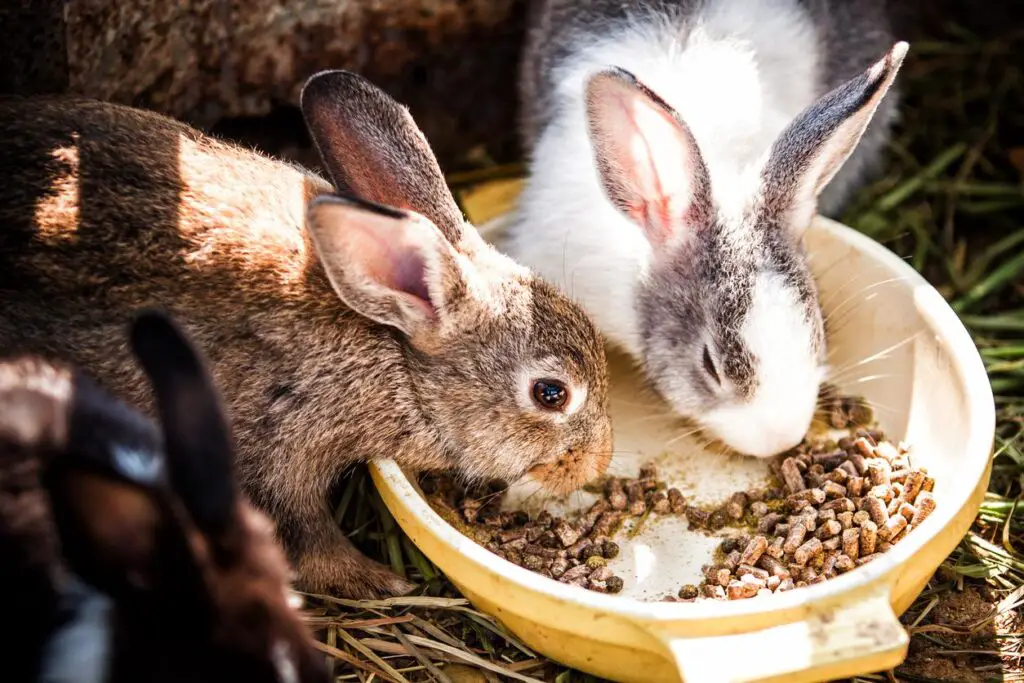
Conclusion
In the captivating realm of animal dietary habits, the question of whether rabbits consume bird seed has led us on a journey of discovery. Through our exploration, we’ve uncovered that while rabbits might show a passing curiosity for bird seed, it isn’t a natural or suitable component of their diet. As herbivores with specialized digestive systems, rabbits thrive on a diet rich in fibrous plants, grasses, and vegetables, which provide the necessary nutrients to maintain their well-being.
The world of rabbits and bird seed has allowed us to appreciate the intricacies of nature’s culinary preferences. While it’s intriguing to observe these small creatures explore various food options, it’s vital to ensure that their nutritional needs are met to ensure their overall health and vitality. As we continue to unravel the mysteries of the animal kingdom’s dietary choices, we gain a deeper understanding of the delicate balance that sustains life in the natural world.

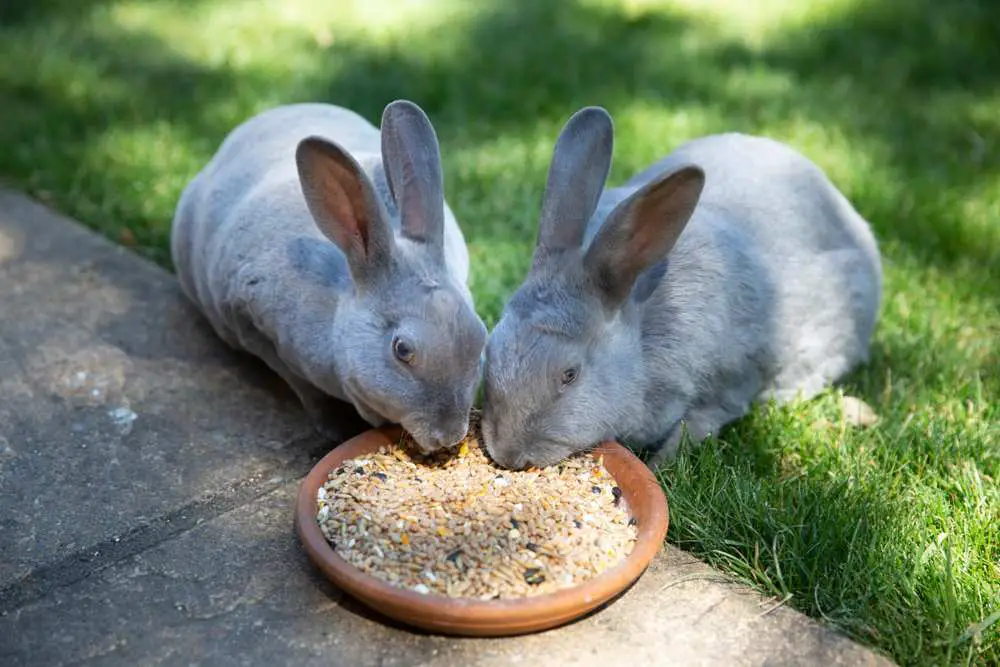
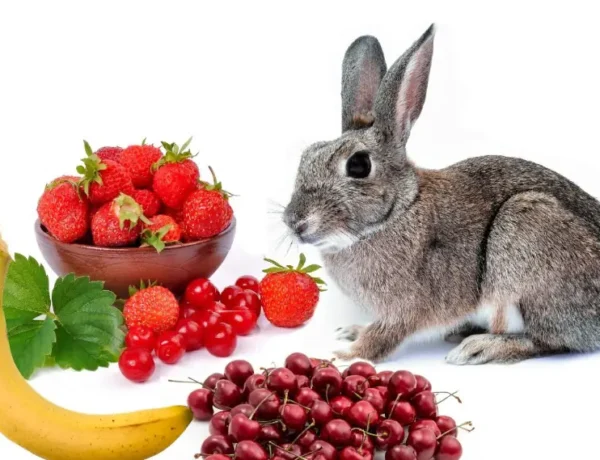
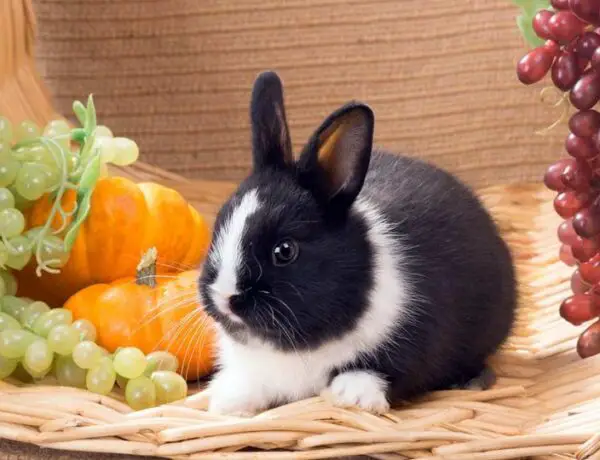
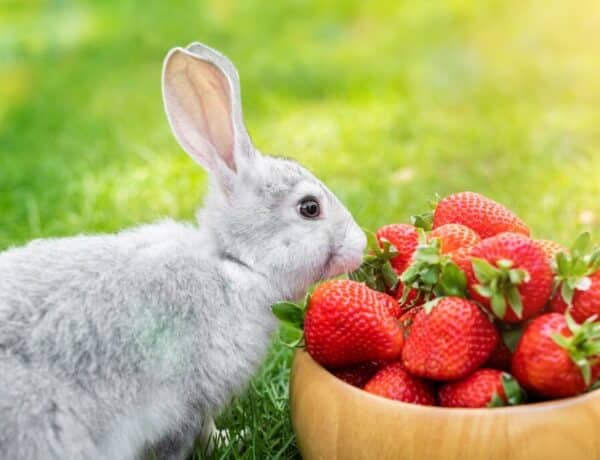
No Comments